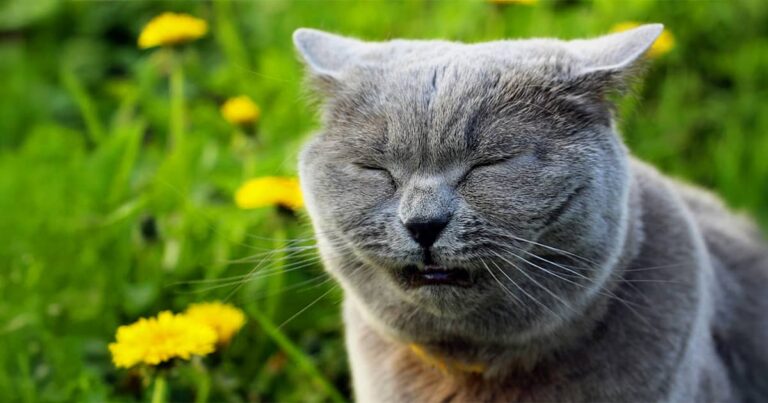Welcome to “Debarking Pet Myths,” a monthly series dedicated to addressing common myths, misconceptions and old wives’ tales about dogs and cats.
Cats can be aloof, relatively self-sufficient pets. For that reason, and because so many pet cats live indoors, we tend to assume they have a low risk for health troubles, including dental problems. Since February is recognized as Pet Dental Health Month, we’ll debunk five common cat dental health care myths.
Myth #1: Cats don’t need dental care.
That’s false. Cats need dental care as much as dogs and people do. Dental diseases are very common in cats, with the American Veterinary Dental Society reporting that 70 percent of cats have some form of dental disease by the time they’re 3 years old.
Just like on our teeth, plaque (a bacterial film) and tartar (mineralized plaque) can accumulate on your cat’s teeth. This buildup can lead to inflammation and infection of the gums. Once gums become infected, bacteria from the mouth can enter the bloodstream and travel to other organs, such as the heart, liver and kidneys, where they cause added health problems for your cat.
Daily brushing can help remove plaque, but a professional teeth cleaning performed by your veterinarian is necessary to remove tartar above and, more importantly, below the gum line.
Myth #2: Dry food is better than canned food for keeping your cat’s teeth clean.
For cats, this common misconception is simply not true. Due to their small size and brittle nature, most dry kibbles provide no significant chewing resistance. (Therapeutic dental diets are the exception.) When a cat’s teeth come in contact with most dry kibbles, the kibble breaks apart before the tooth penetrates it, and any potential benefit from abrasive action is lost. In addition, many cats swallow their dry food whole without any crunching or chewing.
Myth #3: You’ll know if your cat has a dental problem.
This is frequently false, because cats are notoriously good at hiding pain. However, cats with dental problems will often continue to eat, especially if they swallow their dry kibble whole, and to behave normally.
Bad breath is a fairly dependable indicator that your cat may have some form of dental disease. You’ll also want to watch for drooling, chewing only on one side of the mouth, dropping food, pawing at the mouth, bleeding from the mouth, grooming less frequently and sensitivity to being touched close to the mouth. Since some cats may not show any signs of a problem, routine exams are important for early diagnosis and treatment.
Myth #4: Nothing can be done to prevent dental diseases in cats.
Again, this myth is false. The most effective way to help prevent or slow the advancement of periodontal (gum) disease — the most common dental disease in cats — is to brush your cat’s teeth every day to remove plaque and reduce tartar buildup. Be sure to use a pet-specific toothpaste. (The fluoride and xylitol, if included, in human toothpastes can be harmful to cats.)
Another good way to prevent dental diseases is to schedule regular dental cleanings with your veterinarian. Veterinary dental cleanings typically include ultrasonic and hand scaling to remove tartar and plaque, probing the area around teeth and gums, polishing to smooth teeth surfaces and dental X-rays.
Myth #5: It’s hard to brush your cat’s teeth.
This is often false, although it will depend on your cat and your patience and persistence. It’s important to start slowly and gently, often by letting your cat lick a small amount of toothpaste from your finger. You can then introduce a small toothbrush by allowing your cat to lick the pet toothpaste from it. From there you can place the toothbrush in your cat’s mouth, focusing on the outside surfaces of the teeth. Training your cat to accept brushing may require one to two months, but can be accomplished — and result in better-smelling breath!
Honor this February’s Pet Dental Health Month by scheduling an appointment for your cat with your veterinarian. And, seriously, don’t brush off brushing your cat’s teeth. It’s one of the best things you can do to care for your feline friend.

RELATED POST: Nine Tips for Better Pet Dental Care
RELATED POST: What You Need to Know About At-Home Dental Care for Pets







